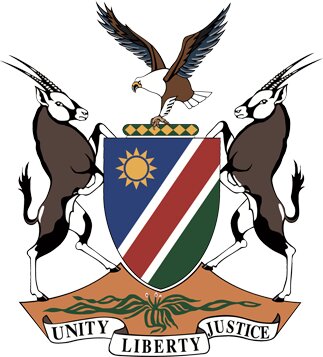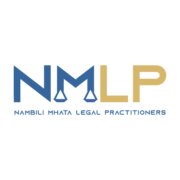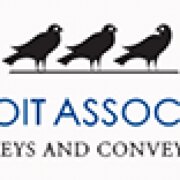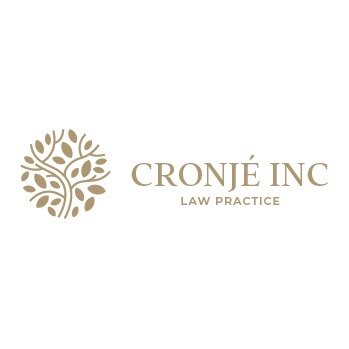Best Conveyancing Lawyers in Windhoek
Share your needs with us, get contacted by law firms.
Free. Takes 2 min.
Free Guide to Hiring a Real Estate Lawyer
List of the best lawyers in Windhoek, Namibia
About Conveyancing Law in Windhoek, Namibia
Conveyancing law in Windhoek, Namibia, governs the legal process of transferring ownership of immovable property such as land or real estate from one person or entity to another. The process is highly regulated to ensure transparent and valid property transactions, covering the drafting and registration of deeds, the transfer of bonds, and the payment of relevant taxes. In Namibia, all conveyancing procedures must comply with both local legislation and the regulatory framework imposed by the Deeds Registries Office, which is responsible for the safe keeping and accuracy of all property records.
Why You May Need a Lawyer
There are many instances where obtaining legal assistance for conveyancing is essential in Windhoek. Some common reasons include:
- Purchasing or selling residential or commercial property, where a lawyer facilitates a legitimate and secure transfer of ownership.
- Transferring property due to inheritance or as part of a deceased estate, which often involves complex legal steps and documentation.
- Dealing with disputes regarding property boundaries or title deed irregularities, where legal clarity is required.
- Registration of mortgage bonds or the cancellation of existing bonds during a property sale.
- Ensuring compliance with local land use, zoning, and property development regulations.
A qualified conveyancer not only ensures that the transaction is lawful but also serves to protect your interests, minimizing the risks of future legal complications or financial loss.
Local Laws Overview
Conveyancing in Windhoek is primarily governed by the Deeds Registries Act, 1937, and various regulations issued by the Ministry of Justice. The key aspects of local law influencing conveyancing are:
- Deed Registration Requirement: All property transfers must be registered with the Deeds Office to be legally effective.
- Licensed Conveyancer: Only qualified attorneys licensed as conveyancers may prepare and lodge transfer documents for registration.
- Compliance with Tax Obligations: Payment of transfer duty, Stamp Duty, and other governmental fees is a prerequisite before any property transfer is finalized.
- Municipal Clearance Certificates: Sellers must obtain and present these to prove that all municipal rates and taxes have been paid.
- Title Deeds: The original title deed for the property must be submitted as part of the transfer process.
- Bond Registration and Cancellation: Anyone buying with the assistance of a loan must also have a separate bond registration process, which also requires a conveyancer.
Non-compliance or procedural errors can lead to delayed or invalid property transfers, emphasizing the importance of following local legal requirements under the guidance of a practiced professional.
Frequently Asked Questions
What is conveyancing?
Conveyancing is the legal process of transferring ownership of immovable property from one person to another, including all documentation and registration work required by law.
Who is authorized to do conveyancing in Windhoek?
Only a qualified attorney who has passed the relevant conveyancing examinations and is admitted as a conveyancer by the High Court of Namibia can perform conveyancing work.
How long does the conveyancing process take?
The conveyancing process in Windhoek typically takes six to twelve weeks, depending on factors such as municipal clearance, bond approval, and the completeness of documentation.
What documents are required for property transfer?
Essential documents include the original title deed, sale agreement, identity documents, municipal clearance certificate, tax receipts, and bond documents if applicable.
What taxes or fees apply to conveyancing in Namibia?
Buyers are usually responsible for paying transfer duty and stamp duty. There are also fees payable to the conveyancer and registration office.
Is it compulsory to use a conveyancer?
Yes, conveyancing in Namibia is a specialist field, and the Deeds Registry will only accept documents prepared and lodged by a licensed conveyancer.
What happens if there is a dispute over property boundaries?
Your conveyancer can review title deeds and, if necessary, work with land surveyors or engage in legal proceedings to resolve disputes.
Can foreigners purchase property in Windhoek?
Generally, foreigners may purchase property in Namibia, subject to certain regulations. Your conveyancer can advise on any restrictions or reporting requirements.
How are property sales canceled or reversed?
A sale can be canceled before transfer by mutual consent or on legal grounds. After registration, any reversal must follow formal cancellation procedures and could involve litigation.
Who pays the conveyancer’s fees?
The buyer usually pays the conveyancing fees, although this can be negotiated as part of the sale agreement.
Additional Resources
If you are seeking further information or guidance, the following resources may be helpful:
- The Deeds Office - Ministry of Land Reform, responsible for registration and records of all property transactions.
- The Law Society of Namibia, which maintains a directory of qualified conveyancers and offers guidance on standards of legal practice.
- The Ministry of Justice, which oversees legal and regulatory matters related to property in Namibia.
- Local municipal councils in Windhoek, which provide information on rates, taxes, and zoning regulations.
Next Steps
If you need legal assistance with conveyancing in Windhoek, Namibia, consider the following steps:
- Consult a qualified conveyancer or legal practitioner who specializes in property law.
- Gather all necessary documents, including your identity documents, title deeds, tax clearance certificates, and any contracts related to the property.
- Request a detailed quotation for fees and government charges to understand your financial commitments.
- Ensure clear communication between all parties involved to prevent delays or misunderstandings.
- Follow your lawyer’s professional advice throughout the process, and do not sign any agreements or documentation without proper guidance.
Seeking professional legal counsel is the most effective way to protect your rights and interests during the conveyancing process in Windhoek.
Lawzana helps you find the best lawyers and law firms in Windhoek through a curated and pre-screened list of qualified legal professionals. Our platform offers rankings and detailed profiles of attorneys and law firms, allowing you to compare based on practice areas, including Conveyancing, experience, and client feedback.
Each profile includes a description of the firm's areas of practice, client reviews, team members and partners, year of establishment, spoken languages, office locations, contact information, social media presence, and any published articles or resources. Most firms on our platform speak English and are experienced in both local and international legal matters.
Get a quote from top-rated law firms in Windhoek, Namibia — quickly, securely, and without unnecessary hassle.
Disclaimer:
The information provided on this page is for general informational purposes only and does not constitute legal advice. While we strive to ensure the accuracy and relevance of the content, legal information may change over time, and interpretations of the law can vary. You should always consult with a qualified legal professional for advice specific to your situation.
We disclaim all liability for actions taken or not taken based on the content of this page. If you believe any information is incorrect or outdated, please contact us, and we will review and update it where appropriate.
















